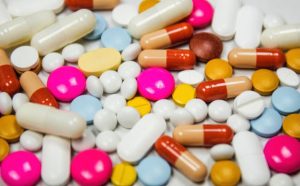Many people are still concerned about taking Ibuprofen and non-steroidal anti-inflammatory drugs (NSAIDs) after news reports linking them to a possible increased risk of Covid-19 infection. NSAIDs are a family of medicines that are not only used as pain killers but also for lowering high temperatures and fevers.
In March the media reported a potential link after France’s Health Minister, Oliver Véran announced on Twitter that taking anti-inflammatory drugs could increase the risk of Covid-19 infection and, in addition, worsen the symptoms. He recommended that paracetamol should be taken instead of ibuprofen to treat the associated high fever. This was obviously a concern for those patients who rely on this group of medicines for pain relief.
The Commission on Human Medicines’ Expert Working Group on coronavirus (COVID-19) has reviewed the safety of ibuprofen with respect to Covid-19 and have concluded that there is currently insufficient evidence to establish a link between use of ibuprofen, or other non-steroidal anti-inflammatory drugs and increased of Covid-19 infection. This advice has also been supported by the World Health Organisation (WHO) who agreed that, to date, there is no strong evidence to suggest a link between NSAIDs and increased risk of Coronavirus infection.
Both the WHO and the Commission on Human Medicines advice that patients can take paracetamol or ibuprofen when self-medicating for symptoms of COVID-19, such as fever and headache and should follow NHS advice if they have any questions or if symptoms get worse. For those patients who use NSAIDs for pain relief are advised to continue taking them as they are prescribed.
NSAIDs include ibuprofen (Nurofen), aspirin, naproxen, meloxicam, diclofenac (Voltarol), etadolac, celecoxib and indomethocin.
Please note that patients who have had Gastro-intestinal bleeds (stomach ulcers) must NOT take NSAIDs and anyone with kidney failure/disease, heart disease and high blood pressure should also avoid taking them.




